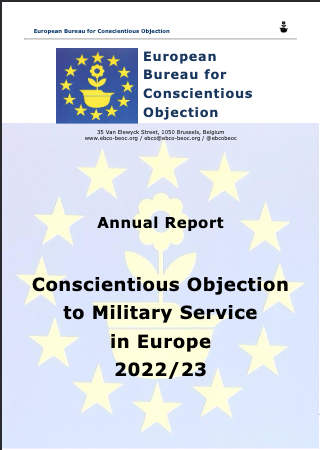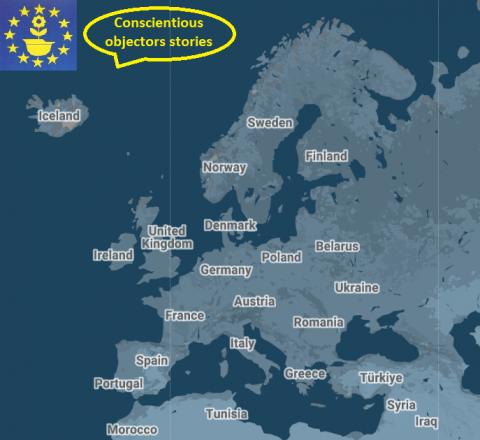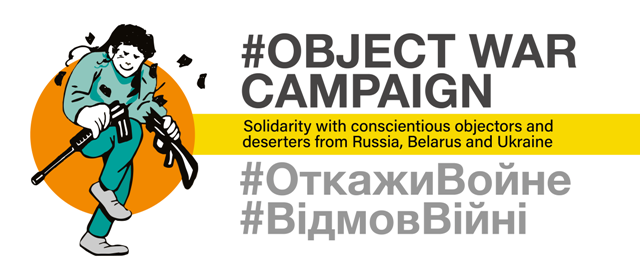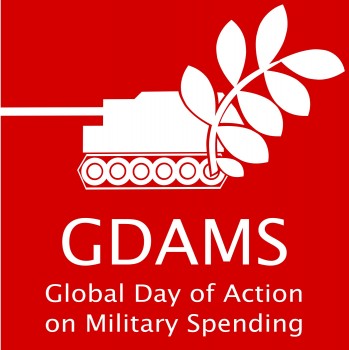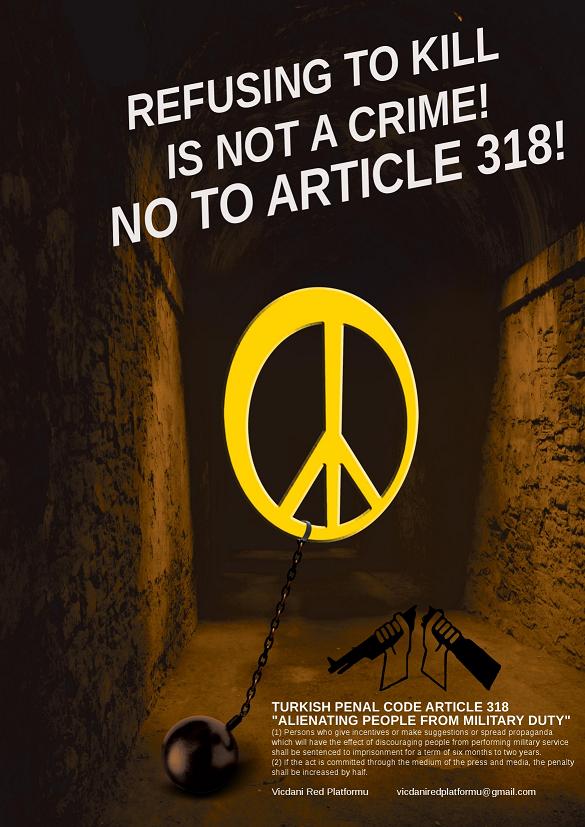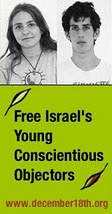18.1.2022 - Joint Press Release - UN Human Rights Committee finds multiple violations in a landmark case of Greek conscientious objector to military service.

On December 6th, the UN Human Rights Committee announced their decision on the case of conscientious objector Lazaros Petromelidis from Greece. The Committee found violations of the articles 9(1), 12(2), 14(7), and 18(1) of the International Covenant on Civil and Political Rights (ICCPR) and asked Greece to take necessary measures addressing these violations. As the organisations signing this statement, we welcome this decision of the Human Rights Committee.
The decision of the UN Human Rights Committee1 in a longstanding case of a Greek conscientious objector advances relevant jurisprudence and could be significant for conscientious objectors in other countries too.
Lazaros Petromelidis had refused on ideological grounds to enlist for military service in 1992, when there was no provision for alternative civilian service in Greece. Subsequently he was prosecuted for insubordination, he was prohibited from exiting the country and an arrest warrant was issued. In 1998, after the entry in force of the first law on alternative civilian service, his first application was rejected, and he was officially recognized as a conscientious objector only after his first arrest. However, he was initially required to perform 39 months of alternative service, while as a conscript of the same age and family status he could serve only 4 months of military service and buy out another 8. After his failure to report for such a punitive and discriminatory alternative service, his conscientious objector status was revoked, and a series of repeated call-ups for military service, arrests and sentences by military courts begun.
Overall, from 1992 until 2014, Lazaros Petromelidis has been convicted 5 times for insubordination, found himself in custody at least 4 times, and paid 2 financial penalties instead of imprisonment.
While it is not the first time that the Committee has examined a case involving a punitive and discriminatory alternative service,2 this is the first case where the conscientious objector has not reported for such service at all. Furthermore, contrary to older cases, this time it was examined under, and was found to be a violation of, article 18(1) of the International Covenant on Civil and Political Rights (ICCPR), about freedom of thought, conscience and religion, instead of article 26 about discrimination – although in an interesting partly dissenting opinion a member of the Committee opined that the case should have been also examined under article 26 and the Committee should have found an additional violation.
Worth noting also that the Committee found for the first time a violation of article 12(2) in a case of a conscientious objector who was prohibited from leaving his country, not only because of “the excessive duration of the impugned interference but also the fact that it has been imposed on the 1 CCPR/C/132/D/3065/2017 2 See Frédéric Foin v. France (CCPR/C/67/D/666/1995); Marc Venier and Paul Nicolas v. France (CCPR/C/69/D/690/1996). author for having legitimately exercised his right to freedom of conscience”. This indicates that there might be further unexplored violations of human rights in cases of conscientious objectors.
The Committee applied its jurisprudence as of the ne bis in idem principle finding again a violation of art. 14(7) for the repeated punishment for the same offence, concerning a conscientious objector not obeying a renewed order to serve in the military for the same reasons of conscience. It is significant though that the Committee rejected the Greek government’s arguments that this was the result of refusal to perform alternative service, noting that the convictions “were again based on his refusal to be drafted in the military”. The Committee also consolidated its jurisprudence as of the violation of art. 9(1) about arbitrary detention as punishment for legitimate exercise of freedom of religion and conscience. This also means that Petromelidis should have not been detained in the first place. In terms of admissibility, it is noteworthy that the Committee accepted to examine the case as a whole, despite some of the court proceedings been ended many years ago, as they were all connected to the same obligation to perform compulsory service and the conscientious objection to it. It is also important that the Committee applied its jurisprudence “that it is only remedies that are both available and effective in a State party that must be exhausted” in a case of a conscientious objector.
The Committee found that Petromelidis was “not obliged to exhaust domestic remedies” for his last set of prosecutions, insofar the Court of Cassation had already ruled in his case in previous proceedings against him. It therefore appears that a conscientious objector repeatedly punished does not need to exhaust domestic remedies for each and every conviction.
According to the Committee’s decision, Greece is obliged to make full reparation to Petromelidis, and therefore, inter alia, to expunge the author’s criminal record, to reimburse all sums paid as fines (i.e., financial penalties instead of imprisonment) and to provide adequate compensation. Greece is also under an obligation to take all steps necessary to prevent similar violations from occurring in the future. It means that, according to the Committee, Greece “should review its legislation with a view to ensuring the effective guarantee of the right to conscientious objection under article 18 (1) of the Covenant, for instance, by providing for the possibility to undertake alternative civilian service that is not punitive and discriminatory in nature”.
The undersigned organisations expect from Greece to immediately implement the UN Human Rights Committee’s decision, both as for Petromelidis’ full reparation as well as for bringing the relevant legislation in line with international human rights law and standards. Connection e.V. European Bureau for Conscientious Objection (EBCO) International Fellowship of Reconciliation (IFOR) War Resisters' International

